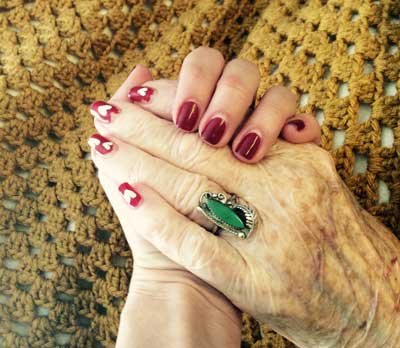- PostedApril 07, 2016
- AuthorKasem Cares
- CategoryDear Cathy
- 4
Here’s a list of things abusers do when taking control, isolating and abusing an elder. The same actions are also taken by guardians, strangers, caretakers, a family member, banks, lawyers, business employees etc.
You are not alone. I’ve come to the realization that there are common threads in how the abuse is accomplished.
1. The abuser earns the trust of the elder.
2. The abuser makes the elder dependent on him/her.
3. The elder becomes scared to make the abuser mad. The elder may say things like, “I’m not suppose to tell you this …” To those loved ones who are able to see or visit them less and less.
4. The abuser starts criticizing the elders loved ones and feeds their fears with lies. They usually focus on one child to denigrate in order to divide siblings. Pictures, in the elders home, of loved ones are moved or disappear to not remind the elder they are loved. Sometimes the caretakers picture and their family replace the elder’s family and loved ones pictures.
5. The elder starts to retreat from his loved ones and along with the abuser becomes secretive creating the us vs. them mentality.
6. The abuser stays by the elder when others are around making sure the elder is never alone when others are around. They monitor the elders phone calls. Or changes the elders cell phone without telling anyone so the loved ones are calling the old phone and the elder gets no calls. The abuser then tells the elder “no one loves you or cares about you but me”.
7. The abuser cuts the elder off from all contact with the elders family, friends and loved ones. Isolating the elder and confining them to their room or house.
8. The abuser gets the elder to sign over his/her financial and medical durable POA’s
9. The abuser gets a doctor to report that the elder has dementia when he/she doesn’t or the doctor declares the person is completely competent when the elder suffers from dementia.
10. The abuser files for conservatorship or guardianship and 9 times out of ten gets it. Or the abuser starts having the elder sign over property, tell the bank to put the abuser on their bank accounts, have the elder sign checks to them or buy them expensive things or leave everything to them in a new will and trust.
11. The abuser who attains guardianship immediately puts the elder in a nursing home, tells family members they are cut off from visiting the elder, starts raping the elders savings and assets, sells the family home for less than it’s worth, charges exorbitant amounts for normal guardian duties.
12. The family and loved ones find out usually after the fact, that their parent or loved one has been abused and taken from them.
13. The family and loved ones seek legal help and are told by lawyer after lawyer they won’t take the case because they won’t win and it’s extremely expensive
14. The abuser who put the elder in a nursing home or care facility against the elders wishes, either won’t tell others where the elder is or they order the nursing home to remove the elders phone and not to allow visitors. The nursing home does as their told because the abuser holds the POA or guardianship. They won’t release medical info to family or loved ones because of the HIPPA law.
15. Family members or loved ones are traumatized by their loss and helplessness, often feeling guilty for failing the abused. The police won’t help seeing elder abuse as a civil matter. APS won’t investigate if the elder is being cared for. Prosecutors refuse to prosecute because undo influence is almost impossible to prove. If they get visitation it’s usually monitored or an hour or more once a week.
16. The nursing home starts drugging the elder with a harmful drug for their dementia like Haldol or they over medicate them so the staff can handle them easier.
17. The elders health declines, the drugs and isolation having shortened their lifespan.
18. a) The family and loved ones are called to the death bed to hold vigil able to see the abused for the first time in months or years just before they pass. b) The family and loved ones are never contacted about the abused’s death. c) The family and loved ones are able to see the dying whose unconscious but must leave before the abused’s plug is pulled or he dies.
19. The body of the abused is immediately cremated at the abusers order. The abuser keeps the ashes refusing the family members requests for burial.
20. Family members or loved ones are left traumatized, unable to think clearly, with symptoms of PTSD months or years later.




Hevesooke